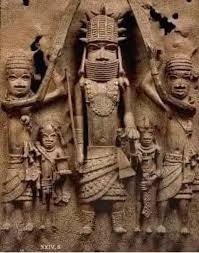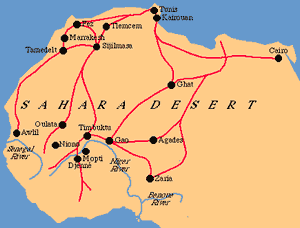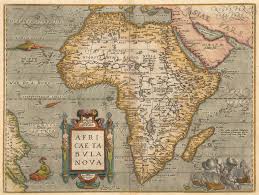The Rich History of the Ikale People

The Rich History of the Ikale People
Explore the rich cultural heritage and historical journey of the Ikale people, a proud Yoruba subgroup with deep roots in southwestern Nigeria.
Tracing the origins, traditions, and resilience of a unique Nigerian community.
The Ikale people, a significant subgroup of the Yoruba ethnic group, have a rich history intertwined with the illustrious Benin Kingdom. From their migration led by the first Abodi to their establishment of unique governance and cultural systems, the Ikale story is one of resilience, adaptability, and unity. This blog explores the origins of the Ikale people, their governance structure, cultural practices, and how their traditions have withstood the test of time.
Origins of the Ikale People
The history of the Ikale people begins in 1502 during the reign of Oba Esigie, one of the most notable kings of the Benin Kingdom. At the time, Oba Esigie faced a succession crisis due to the lack of a male heir. His fortune changed when two male children were born on the same day to different wives—one in secrecy in the morning and the other publicly in the evening. While the firstborn was entitled to succeed, the secrecy of his birth created ambiguity.
To resolve the potential conflict, Oba Esigie advised the elder son, Abodi, to establish his own kingdom across the Owena River. Abodi embarked on this journey with a retinue of chiefs and followers, marking the beginning of the Ikale people's migration. His first settlement was at Arogbo-Ile, where he left his trusted ally Larogbo in charge before moving to Irele. These early settlements, collectively referred to as "Ikoya," became pivotal to Ikale history and identity.
Abodi Jabado and Governance Foundations
Abodi Jabado, the first Abodi, established himself as a ruler and laid the groundwork for Ikale governance. His reign was marked by peace and prosperity, and he was succeeded by his son, Tufewa. Recognizing the importance of structured governance, Tufewa traveled to Ile-Ife, the cradle of Yoruba civilization, to learn from the Ooni of Ife. After three years of tutelage, Tufewa received the Ooni's blessings and symbolic white chalk (Efun), which became central to Ikale identity. The act of marking territories and making inscriptions with white chalk is widely accepted as the origin of the name "Ikale."
Other interpretations of the name include linguistic associations such as "a ka ile yi" ("we covered this land") or derivation from the name of a man named Aale who lived near the Owena River. However, the use of white chalk remains the most widely embraced explanation.
Governance Structure
The governance system established by the early Abodi rulers was hierarchical and strategic. Chiefs, known as Olojas, were appointed to oversee various districts. These leaders maintained loyalty to the Abodi while administering local affairs. By 1979, many of these chiefs were recognized as Obas, granting them greater autonomy while preserving their allegiance to Ikale traditions.
The governance structure also included the Ijama council, an assembly of high-ranking chiefs such as Lisa, Jomo, Petu, Sasere, Odunwo, and Isowa, headed by the Lema. This system was introduced by Tufewa after his return from Ile-Ife. Although the Ijama council was abolished in 1919 due to colonial interference, it was revived in the 1930s and remains integral to Ikale administration.
Key Settlements and Rulers
The Ikale people established settlements across present-day Ondo State and beyond. Prominent rulers included:
- Larogbo of Akotogbo
- Oluhogbo of Ujosun
- Ahaba of Ajagba
- Laragunsin of Iyansan
- Olofun of Irele
- Halu/Lapoki of Ode-Aye
- Jagun of Idepe
- Lumure of Ayika
- Rebuja of Osooro
Some rulers were descendants of other royal houses, such as the Jagun of Idepe from Larogbo and the Rebuja of Osooro from Lumure. These settlements reflected the Ikale people's expansion and cultural adaptability.
Conflicts and Alliances
The Ikale people’s strategic governance enabled them to maintain unity and emerge victorious in many conflicts. Externally, they repelled invasions, such as an attempted takeover by the Alake forces. Internally, they resolved disputes between districts, including Osooro, Idepe, and Ayeka. Despite occasional tensions, the Ikale people’s unity was their greatest strength.
In wars with neighboring groups, such as the Ondo people, the Ikale’s cohesive approach often led to decisive victories. One notable instance was the defeat of Ondo forces, which reportedly caused the immediate death of the Osemawe of Ondo.
Cultural Practices and Modern Legacy
Ikale culture reflects a blend of Benin and Yoruba influences. The use of white chalk in rituals, the hierarchical chieftaincy system, and the adoption of Ile-Ife traditions underscore this dual heritage. Early practices included human sacrifices, primarily involving strangers, but these were later abandoned as the Ikale people embraced modernization and reform.
Festivals and traditional ceremonies remain vital to Ikale identity. The roles of chiefs and Obas are celebrated, and the symbolic use of the Uda sword, given to Abodi by Oba Esigie, remains a testament to their resilience. The appellation “Ogun Olugba Uda” (the warrior who wields the sword) highlights the Abodi's enduring legacy.
Conclusion
The history of the Ikale people is a testament to their adaptability, unity, and cultural depth. From their origins in the Benin Kingdom to their flourishing settlements across Nigeria, the Ikale story is one of strategic migration, governance, and resilience. Their legacy continues to inspire pride among their descendants and intrigue among historians, ensuring that the Ikale people’s contributions to Nigerian history remain celebrated for generations.


